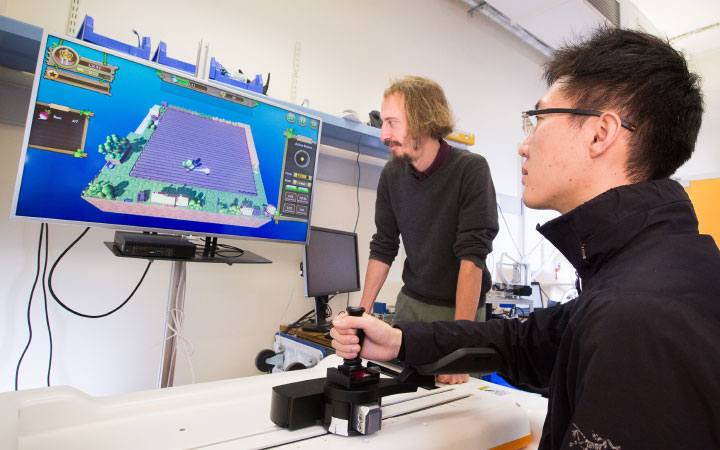Context
To help patients regain movement after a stroke or other brain injury requires physical rehabilitation activities that balance difficulty with achievability to motivate patients to practice exercises that will assist their recovery. In rehabilitation settings, robotic or computerised aids to assist with this process need to take into account the varying needs and abilities of patients.

Solution
In collaboration with the international industry partner Fourier Intelligence we have developed a new intelligent controller, incorporating it in into an existing commercially available robotic platform that helps patients with upper limb rehabilitation exercises.
Participating patients play video games as part of their practice routines. The robotic aid provides support for the patients’ arms and assistance with the arm movements needed to complete the game cycles.
The new controller is able to fuse information from both the video games and the motion sensors to activate robotic assistance for the patient at appropriate times, without compromising the practice routines. Alternative designs for the device have also reduced the weight of the robotic aid, make it easier to use and cheaper to manufacture.
Impact
Successful trials have been run in conjunction with the Royal Melbourne Hospital, and Fourier Intelligence has incorporated the new controller and revised designs into the commercial production of its rehabilitation equipment. The partnership with Fourier is ongoing, with further research to improve the intelligent design and responsiveness of other rehabilitation devices.
The stroke rehabilitation research has also led to collaborations with researchers from Imperial College and the University of Southampton in the United Kingdom.